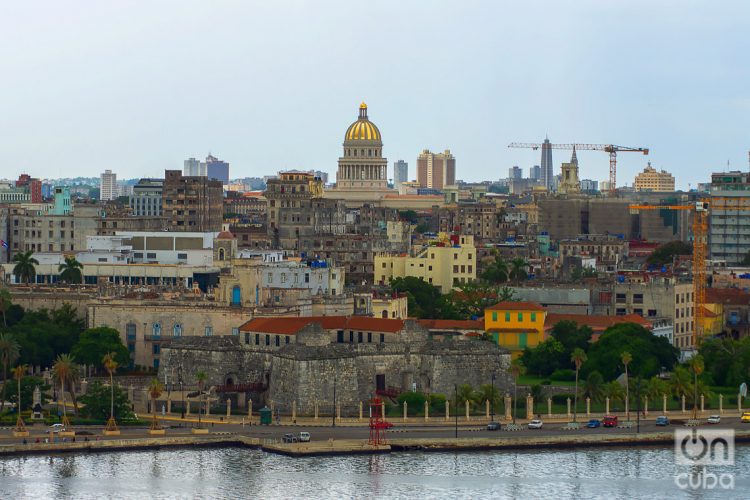They have not always had the opportunity to be heard, even less to be understood, but they have always been part of the “target” practice in that fair in which we all believe in the right to throw soft balls at them and blame them for almost everything bad that state enterprises produce, or do not produce.
Our state businesspeople, who are also often called “cadres,” have always lived like a hot dog trapped between two pieces of bread, who, at the same time, are pressured by the same people who demand that they be agile, creative and innovative. Those who demand also decide and impose the rules of the game that condemn businesspeople to that status of “hot dogs.”
There has been, for a long time, a great debate about the quality and skills of state businesspeople. The extent of these criteria ranges from those that consider them very far from what a businessperson should be to those that identify the state businessperson as a kind of link in a transmission chain.
I still remember that meeting of Fidel — with a group of businesspeople in tourism, I believe —, in which the skills and results of foreign managers in Cuban hotels stood out. At the meeting, a Cuban businesswoman asked Fidel that Cuban businesspeople be given the same freedom of action as the foreign ones. A lot of water has gone under the bridge since then, but the essence of that statement still stands.
The truth is that a great many of those businesspeople who seem slow, lacking in creativity, not very innovative, etc. in other contexts, transmute almost immediately, bringing out qualities for which they seemed genetically disabled. It does not matter whether it is because they enter the so-called “non-state sector” or because they are inserted in enterprises in other countries. It is clear that not all pass the test, but that is common in any context, not only in Cuba.
But this time I will not write about our state businesspeople, I have done it on other occasions. I will write about that very necessary meeting with the President of the Republic, a meeting that I hope will be repeated frequently, because listening to our state businesspeople — the same ones who have the responsibility of ensuring that our socialist enterprises truly achieve that decisive role with the aim of achieving a prosperous, sustainable and socialist country — is fundamental. Without them, it will not be possible.
Three presentations that I heard during the aforementioned meeting, about which it is worth thinking:
– “Businesspeople should be prohibited from talking about the blockade”
For almost three decades the blockade was a benchmark of the context in which Cuba was forced to live, but its effects, at least in economic terms, were cushioned by “the fraternal and solidarity aid of the Soviet Union” and by exchanges of goods in favorable conditions for Cuba. Everything changed in 1990. The blockade appeared in almost all its magnitude, making any endeavor doubly difficult. That is an undeniable reality, as well as unfair. The blockade is there, today it is the most important component of the “special” context in which Cuba has to live.
It was Army General Raúl Castro, in one of his speeches as president of the country, who urged not to use the blockade to justify internal failures and errors. But “talking” about the blockade is a culture acquired, learned and deeply consolidated in the discourse not only of our businesspeople. It is, almost always, the “second obligatory bit” of any public intervention by many of our leaders, which reinforces an acquired and deeply rooted culture in all of them.
It is true that the environments or contexts in which a country/organization/enterprise has to develop cannot be changed at will. Almost always, you have to know how to negotiate them when you can. In the case of the blockade, negotiation is not possible. It has become a parameter with a negative sign that forces us to always work below what would be considered optimal.
But what is decisive in this war is not the blockade, it is the ability to enhance the strengths that we have today. There are many evidences of how far we are from doing it and this, in large part, has to do with subjecting state businesspeople to restrictions that many years ago should have been swept from our reality.
Many holes can be made in the blockade, let’s take it as an opportunity to innovate, grow and enhance those strengths and not as the justification for our deficits.
– “If you lose the little power that these measures are giving you if you let it be taken away, you will be the same as before”
It is an old dilemma that is better resolved in theory than in practice, that of the often mentioned business autonomy.
My fellow business specialists have written hundreds of papers on this. At the last Congress of the National Association of Cuban Economists, held several years ago, it was one of the main topics and it has been almost since the Socialist State Enterprise emerged. It was a failed purpose in the System of Management and Planning of the Economy, it also failed in the Business Improvement, it was equally so in the first decade of this century. It has not been due to lack of repetition and explanation of how necessary the autonomy of the state enterprise is and how much non-autonomy impacts its results.
Academics have been asked to explain it many times, for several decades, and many colleagues have worn themselves out doing it, unfortunately, the explanations have remained there and our state enterprises, as well as our businesspeople have continued to be subjected to what the ministries decide.
An example of the lack of autonomy: Let’s imagine that an official of a state enterprise identifies a business opportunity with an investor of a foreign company, then that entrepreneur must go to the negotiating group of his Higher Business Management Organization (OSDE), which is the first “filter,” then that decision must be consulted with the corresponding department of his Ministry, so far everything has gone well, although it has taken “a few days.” Once the corresponding “OKs” have been achieved, (the businessman or businesswoman) then walks to the Ministry of Foreign Trade (MINCEX) and that business proposal goes to the Commission for the Evaluation of Businesses with Foreign Investment, made up of six other government institutions, it is put on the agenda for a certain time and that commission then recommends whether the business proceeds or not, how autonomous is that enterprise and that businessperson? How much time has been wasted? What is that future partner’s image of that enterprise? How many hands have been involved in the work for the enterprise? How long will it take to set up a new business, which brings fresh capital and technology to a country that urgently needs it, that is blocked and whose operations are persecuted by the whole world? Does anyone know of any that have been up and running in less than three months?
– “Export is a necessity, however, we are not satisfied because there are mechanisms for interacting for export that are really obsolete for the times we are living, and for the needs of the country, they have to leave us a little more room for decision… Businesses must be done in the time they take…”
Foreign trade, exports, foreign investment, internationalization of Cuban enterprises, these are, today, decisive weapons in the war that this blocked country has to wage. They are essential resources to “negotiate the context,” it is regrettable that we do not take full advantage of them. How much more should those state businesspeople who are required to fulfill their role continue to wait?
This is undoubtedly the power dilemma. It is an inherited culture in which greater autonomy of enterprises is understood as less power of the ministries. It is also the ministries’ answer to the real fact that when an enterprise fails, it is understood that it is the responsibility of those ministries and they have to be accountable for it. It is the culture we have lived in for over 60 years. It has little to do with the people who work in those organizations and they are surely as good Cubans as others. But it is also a bureaucratic construction, which transcends people and acquires a life of its own; the bureaucracy knows how to defend itself, it struggles not only to survive but to be decisive and appear essential.
This should be like the fifth season of that great telenovela that has been the transformation/modernization/improvement of our business system, all the previous ones did not have happy endings, perhaps because the protagonists — our businesspeople — did not have the opportunity to discuss the script, perhaps because they were not well listened to. Today they have another context before them and they will have to get rid of that culture and impose “command and order” practices, even when the law that should support them is waiting on the agenda.
Let’s hope this time history does not repeat itself.










